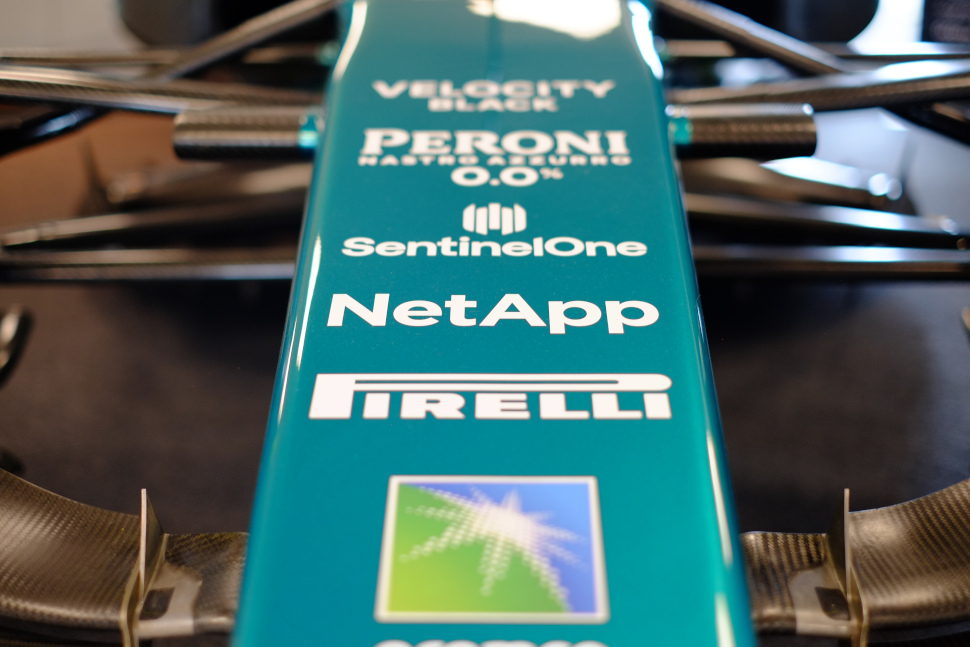"This year is a year where every business will try out a lot of different things" - NetApp CEO on why it's time to get your data in order
As the business world evolves, NetApp wants to make sure you get the most out of your data

With AI tools now firmly entrenched in businesses of all sizes across every industry, the question now surely turns to how to make the most of the benefits it can bring.
As one of the leading firms when it comes to data management, NetApp should be well placed to discuss the effects the technology can have on businesses of all sizes.
"We have been the leader in unstructured data for the longest time," NetApp CEO George Kurian told me at a briefing in London recently.
“We help smaller businesses have access to the tools larger businesses use, but with the cost, the simplicity and the flexibility that the largest businesses won’t want," he adds.
“As your business scales, you can grow with us...We are the only vendor that has the same tools the larger organizations benefit from, for a mid-sized enterprise, but in the packaging, the cost structure and the ease of use that a smaller business wants."
Getting your data ready for AI
"This year is a year where every business will try out a lot of different things, and then they will prioritize what makes the most sense for their business," Kurian told TechRadar Pro.
Kurian says the role of NetApp is to help businesses realise where their data is, but then also map what applications access what data, and then unify and bring in quality and governance - what he says is essentially, "getting your data ready for the use for AI."
Are you a pro? Subscribe to our newsletter
Sign up to the TechRadar Pro newsletter to get all the top news, opinion, features and guidance your business needs to succeed!
"We're in the age of data," he adds, "data is the unique intellectual property and asset that an organization has, and it’s particularly valuable in the age of AI."
Of course, having the right kind of data and extracting useful insight and actions from it are different things, and being supported by the most effective cloud platforms will also help.
When asked by our sister publication IT Pro last year how businesses can do this, Kurian had said hybrid cloud was the only way to capitalize on generative AI - and it's a position he stands by when I ask him if his opinion has changed.
“What we find is that you want to try out a small data set and you want to move quickly - the best way to do that is on public cloud," he says, "but the reality is that all of your data is not in the public cloud, it’s in your data center, it’s in your manufacturing floors and so on - making hybrid cloud the most effective solution."

We've heard lots about how AI can benefit firms in the technology space, but I ask Kurian what he would like to potentially see the platform do more of in the future.
“I think there are some big problems of the human condition that AI as an element of digitization can help bring forward," he says, recalling a recent trip to India, where technology is playing a huge role in modernizing rural economies. But he also highlights the role AI can play in healthcare and life sciences, whether that be by improving patient care, especially in mental health, or by discovering new medicines or running digital patient trials.
Internally, Kurian says that NetApp has been utilizing the power of AI for some time now, particularly in improving software development tools to boost productivity, whether that be by modernizing old code, speeding up testing, improving writing documentation and technical notes - but also in customer support, where generative AI tools can search knowledge repositories to help the company's nearly five thousand of development engineers. As Kurian notes, improving their productivity even slightly is, “a profoundly transformational competitive advantage."
"We are segregating hype from reality," he notes, "we are a very sophisticated software development organization, so what might be useful for a mobile app developer may not be useful for a highly sophisticated operating system development or environment…so we really dial in, and I spend time with the engineers that are building that to see what really works.”
Looking forward, Kurian is perhaps understandably optimistic about 2024, saying that NetApp is feeling hopefuly and positive for the year ahead, with what he says is "the strongest portfolio we've had in years".
"It's early, but we're excited at the possibilities," Kurian concludes, "we are uniquely positioned to help clients use their data to derive competitive advantage in a world where everybody will have access to the latest models.”
More from TechRadar Pro

Mike Moore is Deputy Editor at TechRadar Pro. He has worked as a B2B and B2C tech journalist for nearly a decade, including at one of the UK's leading national newspapers and fellow Future title ITProPortal, and when he's not keeping track of all the latest enterprise and workplace trends, can most likely be found watching, following or taking part in some kind of sport.